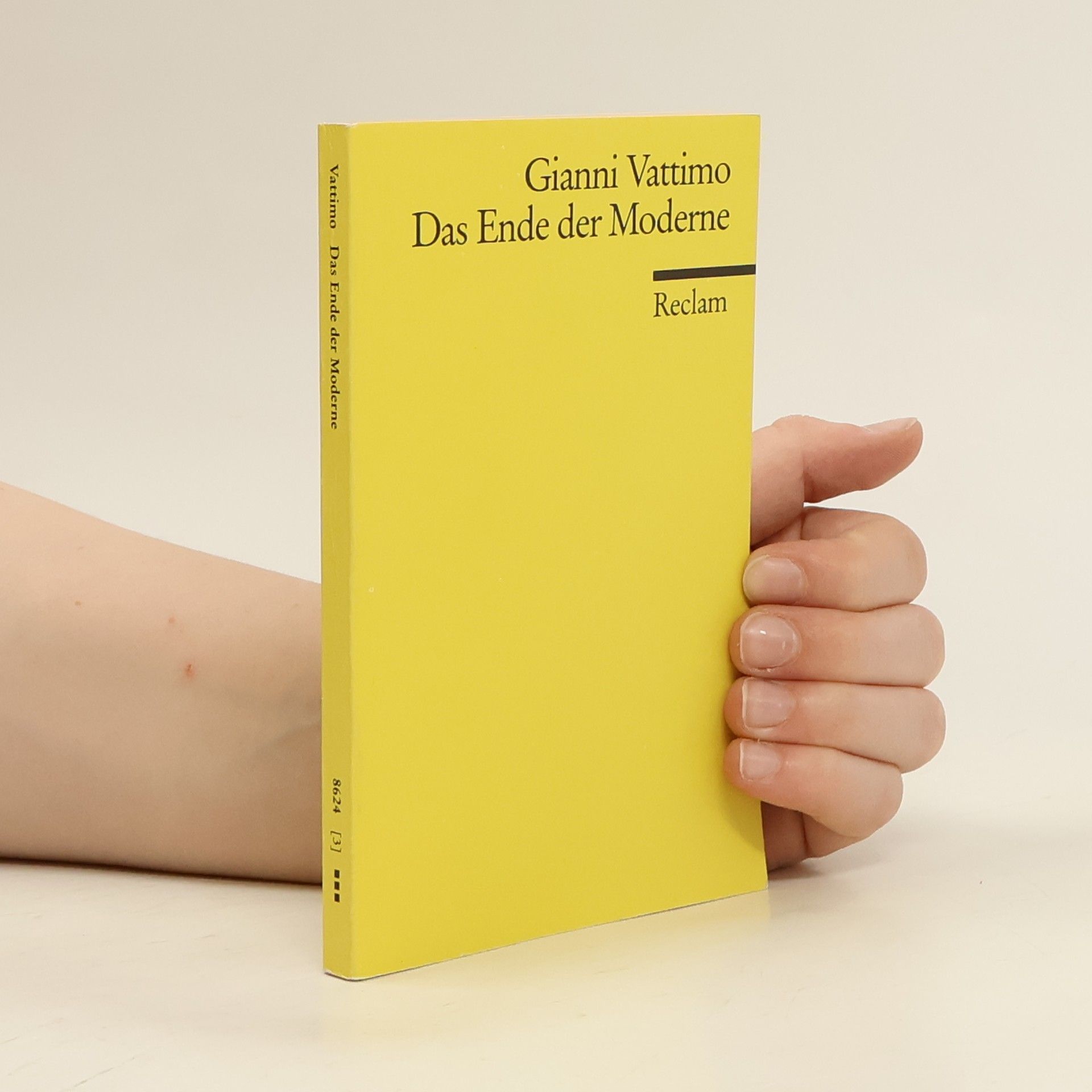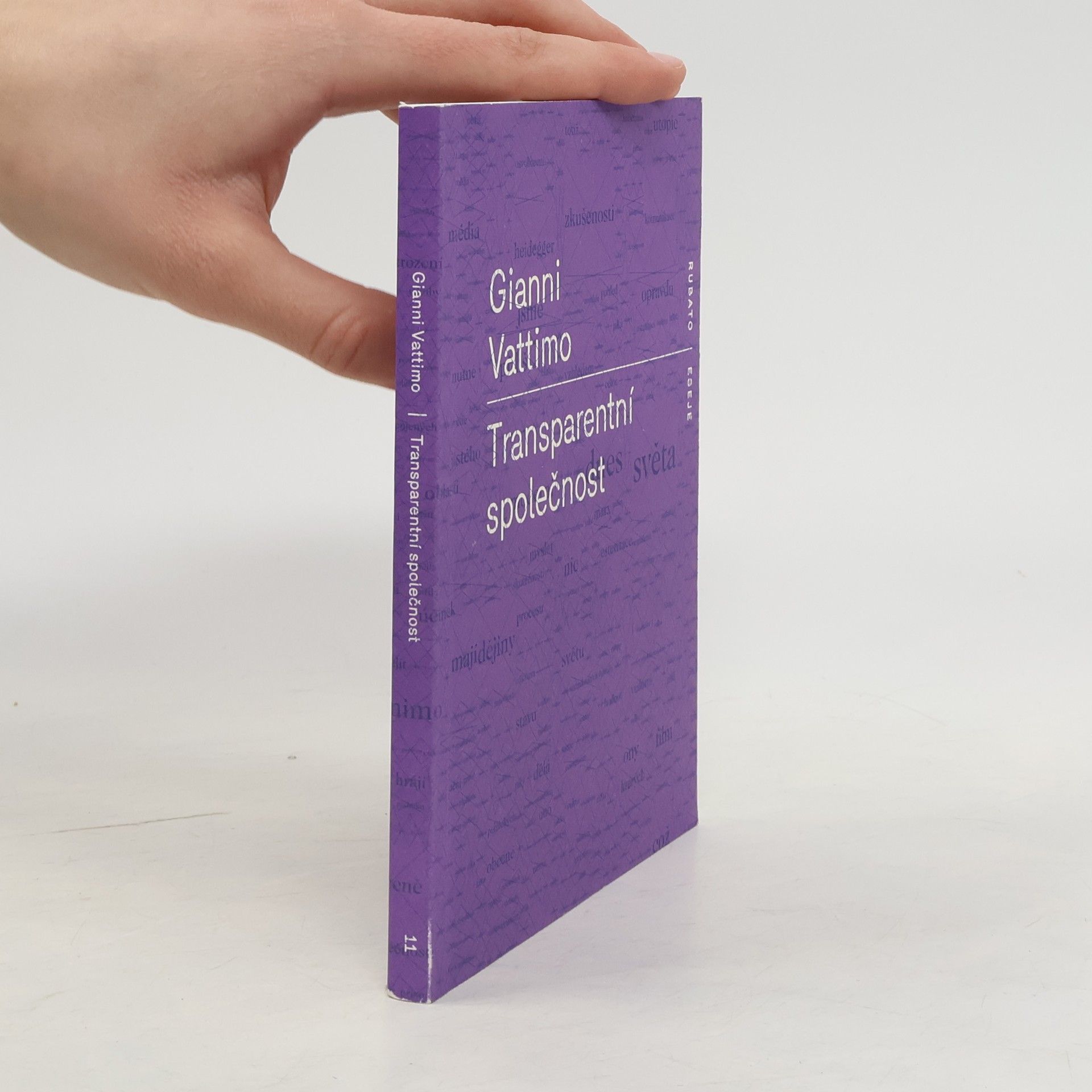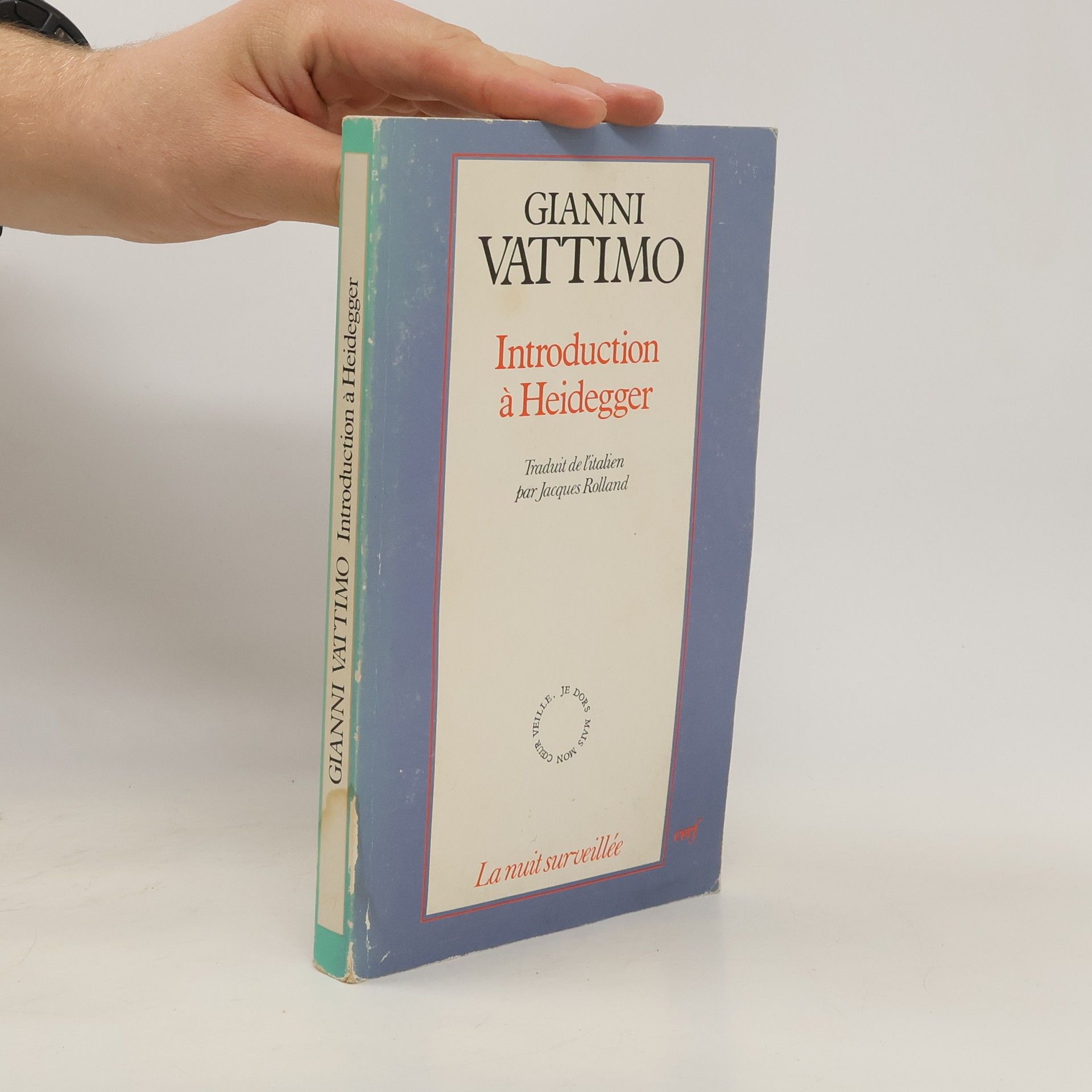The book presents a novel interpretation of Nietzsche and Heidegger, exploring their philosophical contributions and how they influenced Vattimo's idea of weak thought. It delves into the complexities of their ideas, highlighting the transition from traditional metaphysics to a more fluid understanding of truth and existence. By examining the interplay between these thinkers, the work offers insights into contemporary philosophical discourse and the evolution of thought in the modern era.
Gianni Vattimo Boeken
Gianni Vattimo is een internationaal erkend Italiaans auteur en filosoof, bekend om zijn bijdragen aan het postmoderne denken. Zijn filosofie wordt gekenmerkt door "zwak denken" (pensiero debole), dat de fundamentele zekerheden van de moderniteit en de nadruk op objectieve waarheid loslaat. Vattimo pleit voor een veelzijdigere opvatting van de werkelijkheid, die meer aansluit bij de kunst en haar inherente veelvormigheid. Zijn werk nodigt uit tot heroverweging van de grondslagen van kennis en het omarmen van een diversere interpretatie.

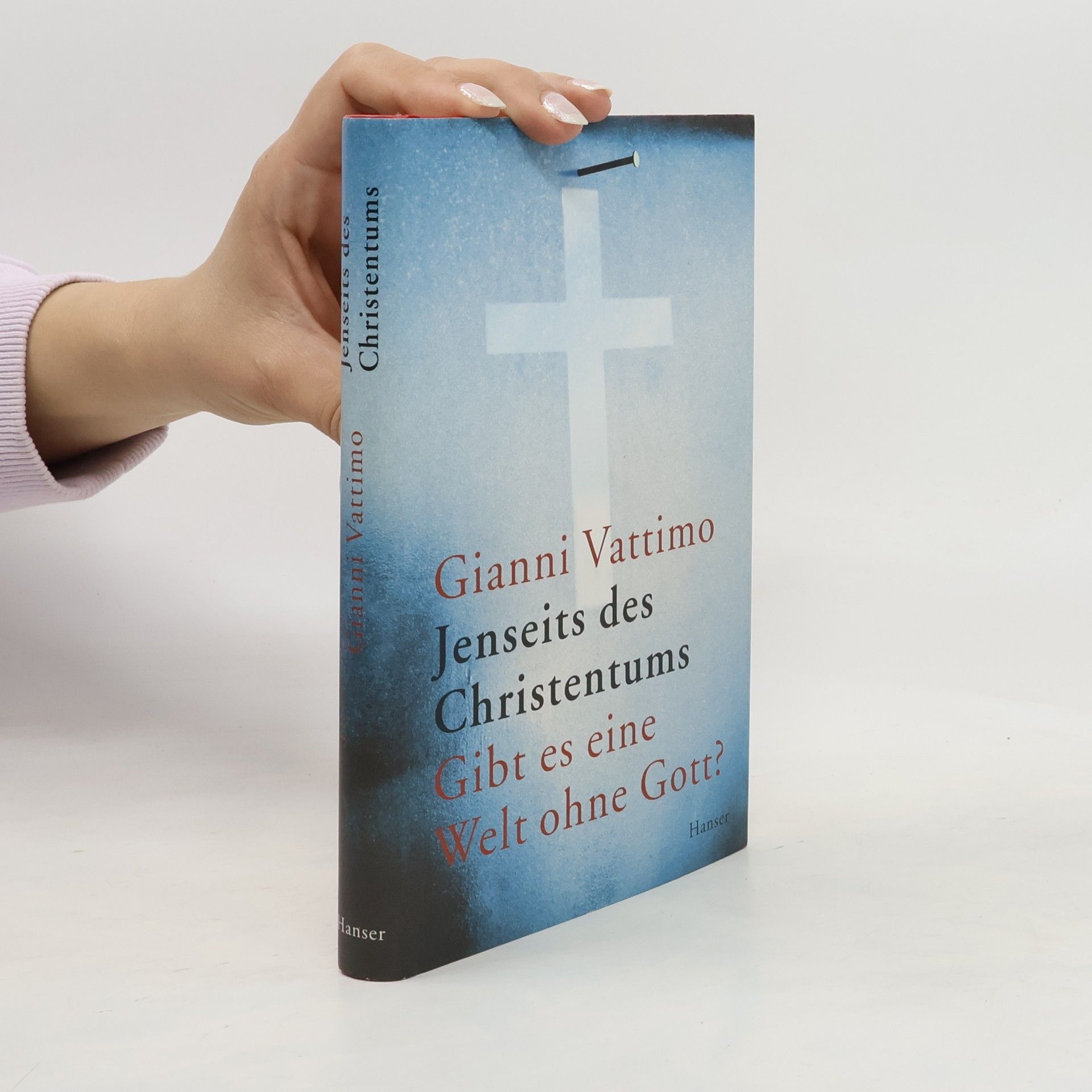

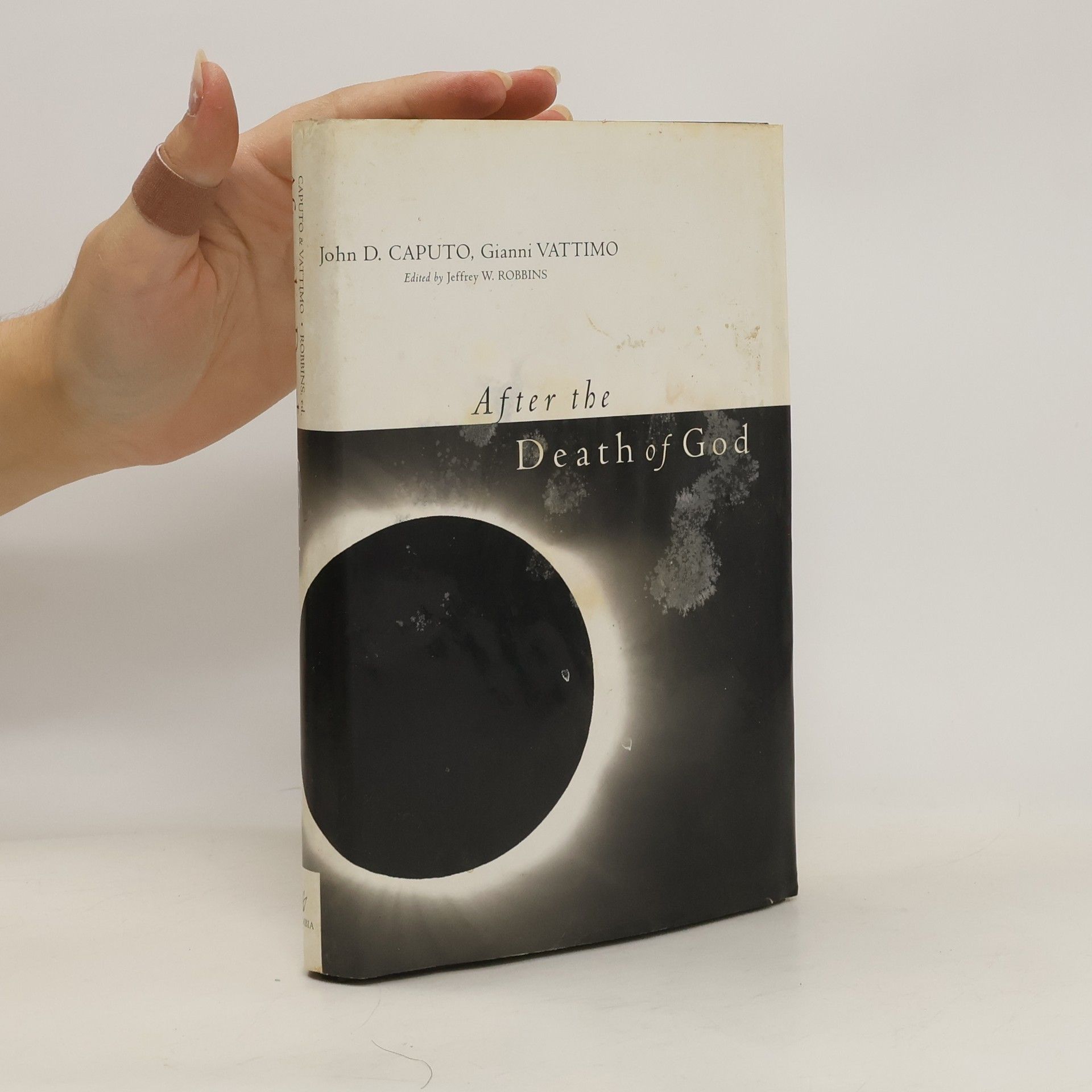
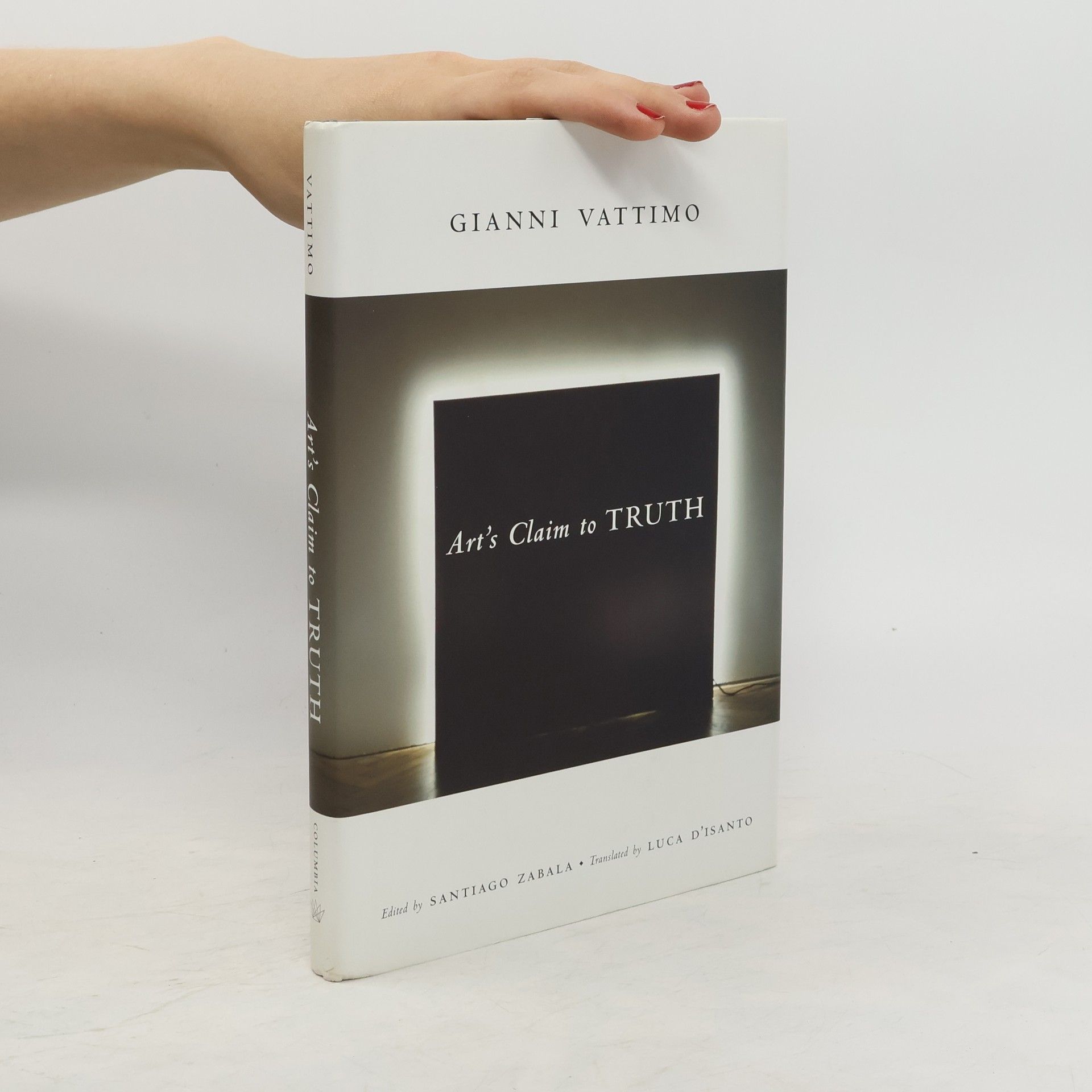


Hermeneutic Communism
- 264bladzijden
- 10 uur lezen
Separating communism from its metaphysical foundations, which include an abiding faith in the immutable laws of history and an almost holy conception of the proletariat, the authors recast Marx's theories at a time when capitalism's metaphysical moorings are buckling
Art’s Claim to Truth
- 216bladzijden
- 8 uur lezen
First collected in Italy in 1985, Art's Claim to Truth is considered by many philosophers to be one of Gianni Vattimo's most important works. Newly revised for English readers, the book begins with a challenge to Plato, Aristotle, Kant, and Hegel, who viewed art as a metaphysical aspect of reality rather than a futuristic anticipation of it. Following Martin Heidegger's interpretation of the history of philosophy, Vattimo outlines the existential ontological conditions of aesthetics, paying particular attention to the works of Kandinsky, which reaffirm the ontological implications of art.Vattimo then builds on Hans-Georg Gadamer's theory of aesthetics and provides an alternative to a rationalistic-positivistic criticism of art. This is the heart of Vattimo's argument, and with it he demonstrates how hermeneutical philosophy reaffirms art's ontological status and makes clear the importance of hermeneutics for aesthetic studies. In the book's final section, Vattimo articulates the consequences of reclaiming the ontological status of aesthetics without its metaphysical implications, holding Aristotle's concept of beauty responsible for the dissolution of metaphysics itself. In its direct engagement with the works of Gadamer, Heidegger, and Luigi Pareyson, Art's Claim to Truth offers a better understanding of the work of Vattimo and a deeper knowledge of ontology, hermeneutics, and the philosophical examination of truth.
It has long been assumed that the more modern we become, the less religious we will be. Yet a recent resurrection in faith has challenged the certainty of this belief. In these original essays and interviews, leading hermeneutical philosophers and postmodern theorists John D. Caputo and Gianni Vattimo engage with each other's past and present work on the subject and reflect on our transition from secularism to postsecularism.As two of the figures who have contributed the most to the theoretical reflections on the contemporary philosophical turn to religion, Caputo and Vattimo explore the changes, distortions, and reforms that are a part of our postmodern faith and the forces shaping the religious imagination today. Incisively and imaginatively connecting their argument to issues ranging from terrorism to fanaticism and from politics to media and culture, these thinkers continue to reinvent the field of hermeneutic philosophy with wit, grace, and passion.
Being and Its Surroundings
- 264bladzijden
- 10 uur lezen
Gianni Vattimo, a leading contemporary philosopher known for his concept of weak thought, challenges the traditional Western view of Being as an absolute and unchanging reality. Through a series of essays, he examines both theoretical and practical implications of this rejection, navigating the complexities of Being without aiming for a systematic or definitive analysis. This exploration invites readers to reconsider foundational philosophical concepts in a more fluid and dynamic context.
Der Philosoph Gianni Vattimo diskutiert die Idee eines postmodernen Gottes und plädiert für eine neue Form des Christentums, die sich von Dogmen befreit hat, als Antwort auf Nietzsches Aussage, dass Gott tot ist.
Das Ende der Moderne
- 208bladzijden
- 8 uur lezen
Die „Wiederkehr Gottes“ scheint die Kultur und das Denken der Gegenwart in besonderer Weise zu charakterisieren. Doch was kann heute Sinn der religiösen Erfahrung sein? Gianni Vattimo, einer der prominentesten postmodernen Philosophen, bekannt geworden durch seine Konzeption des „schwachen Denkens“, gibt darauf nicht nur eine philosophische, sondern auch eine sehr persönliche Antwort. Während für ihn die Menschwerdung Christi die Säkularisierung des göttlichen Prinzips und somit die Befreiung von Absolutheitsansprüchen jeglicher Art bedeutet, rückt er das Gebot der (Nächsten-)Liebe ins Zentrum seiner Betrachtung. Er tut dies jedoch nicht naiv und im Sinne kirchlichen Dogmas, sondern auf sanft-anarchische und ironisch-de(kon)struktive Weise.
Transparentní společnost
- 148bladzijden
- 6 uur lezen
Plně informovaný pohled na svět (média v něm jsou určující, v negativním i positivním slova smyslu) mění společnost a sociální scénář - mění se pojmy demokracie, pravdy. Místo individuální zkušenosti nastupuje zkušenost mediální a člověk nalézá své kořeny a identitu jen tehdy, hledí-li na sebe ze stránek novin, z televize či internetu; jinak bloumá světem vykořeněn a bez osobnosti. Jak mění mediatizace naší existenci a realitu bez toho, že bychom chtěli zprostředkovaný svět démonizovat či se mu bránit zbytečnou nostalgii? V co se přeměnily mýty v komunikační společnosti? Má ještě smysl hovořit o pokroku a revoluci? Co nám schází ke štěstí a jaká je estetika v informované společnosti? Kniha Transparentní společnost (autor, Gianni Vattimo, je v Evropě i v obou Amerikách dobře známý italský filozof) byla přeložena do mnoha jazyků a její obsah se stal součástí společenského diskurzu ve většině civilizovaných zemí ku prospěchu dříve jmenovaného: co zbytečných floskulí a směšných omylů by si naši politici, televizní diskutéři a umělci mohli odpustit, kdyby znali tuto knihu!
En 1927, Etre et Temps (Sein und Zeit), le maître ouvrage de Heidegger, pose la question oubliée du sens de l'être. Evénement philosophique majeur, ce livre est la source de l'évolution du penseur qui, sur des registres différents, mais avec une attention toujours plus éveillée, ne cessera de reposer cette question. Le livre de Gianni Vattimo veut mériter son titre : il est une véritable introduction à cette œuvre incontournable. Partant des écrits antérieurs, il en dégage la problématique, en explique les concepts, en mesure les résultats et en trace les perspectives. L'évolution postérieure du penseur apparaît dès lors comme la tentative sans cesse reprise de répondre aux questions laissées en suspens. Deux moments essentiels (plus conceptuels que chronologiques) marquent cette évolution : l'un où l'être se donne à penser comme sa propre histoire, l'autre où il se manifeste comme événement de langage. L'exceptionnelle familiarité de Gianni Vattimo - né en 1936 à Turin où il occupe la chaire de philosophie théorique - avec la pensée de Martin Heidegger réussit le tour de force d'offrir une introduction simple et une interprétation forte : par-delà évolutions et retournements, il manifeste l'extraordinaire unité de cette œuvre fondamentale.
